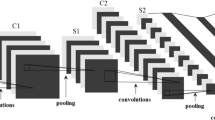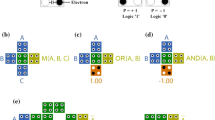Abstract
Block Turbo-codes (BTC) are promising forward error correction (FEC) codes providing close-to-optimal coding gain for rather high coding rate (R > 0.7) and less subject to an error floor than Convolution Turbo Codes (CTC). Due to its good convergence properties, the Fang-Buda algorithm (FBA) allows efficiently decoding BTC in far less iterations than traditional soft-decoding algorithms such as Chase's algorithm. Moreover it can handle BTC inner code with higher minimum distance, improving consequently coding performances.
However, the FBA data-intensive character and its very complex control structure are dramatic bottlenecks for a low-power, high-throughput implementation. Therefore, currently available BTC decoders are based on some variants of the Chase algorithm and can only handle simple BTC inner codes. In order to enable high performance BTCs without sacrificing throughput or energy, we have systematically analyzed and optimized the FBA algorithm, applying a systematic methodology to improve the data transfer and storage characteristics. This paper details the algorithm transformation steps and the resulting memory architecture. The latter, when mapped in a typical 0.18 μm technology and clocked at 200 MHz, enables BTCs with maximum throughput up to 134 Mbps. The memory power consumption, which is dominant for such a data-dominated application, has been estimated, after optimization, to 16 nJ/bit while the memory area estimation led to 3.5 mm2 per FBA module in the BTC pipeline.
Similar content being viewed by others
References
C. Berrou, A. Glavieux, and P. Thitimajshima, “Near Shannon Limit Error Correcting Coding and Decoding: Turbo Codes,” in Proc. IEEE International Conference on Communication, Geneva, Switzerland, May 1993, vol. 2/3, pp. 1064–1071.
J. Hagenauer, “The Turbo Principle: Tutorial Introduction and State of the Art,” in Proc. International Symposium on Turbo Codes, Brest, France, 1997.
G. Forney, Jr., “Burst-Correcting Codes for the Classic Bursty Channel,” IEEE Transactions on Communications,vol. 19, Issue. 5, 1971, pp. 772–781.
R. Pyndiah, A. Glavieux, A. Picart, and S. Jacq, “Near Optimal Decoding of Product Codes,” in Proc. IEEE GLOBE-COM'94, San Francisco, Nov.-Dec. 1994, vol. 1/3, pp. 339–343.
S. Lin and D.J. Costello Jr., Error Control Coding— Fundamentals and Applications, Prentice-Hall, 1983.
D. Chase, “A Class of Algorithms for Decoding Block Codes with Channel Measurement Information,” IEEE Trans. Inform. Theory,vol. IT-18, 1972, pp. 170–182.
A. Berthet, A.J. Fang, F. Buda, E. Lemois, and P. Tortelier, “A Comparison of SISO Algorithms for Iterative Decoding of Multidimensional Product Codes,” in Proc. Vehicular Technologies Conference,Tokyo, Japan, Spring 2000, vol. 2, pp. 1021–1025.
AHA, “AHA4540 Astro-OC3 155 Mb/s Turbo Product Code Encoder/ Decoder,” Preliminary Data Sheet, http://www.aha.com
F. Cathoor, S. Wuytack, E. de Greef, F. Balasa, L. Nachtergaele, and A. Vandecapelle, “Custom Memory Management Methodology, Exploration of Memory Organization for Embedded Multimedia System Design,” Kluwer Academic Publishers, 1998.
L.F. Chao, A. La Paugh, and E.H.M. Sha, “Rotation Scheduling A Loop Pipelining Algorithm,” in Proc. 30th ACM/IEEE Design Automation Conference, Dallas, June 1993, pp. 566–572.
E. Brockmeyer, A. Vandecappelle, S. Wuytack, and F. Catthoor, “LowPower Storage Cycle Budget Distribution Tool Support for Hierarchical Graphs,” in Proc. 13th International Symposium on System Synthesis (ISSS), Madrid, Spain, Sept. 2000, pp. 20–22.
Author information
Authors and Affiliations
Rights and permissions
About this article
Cite this article
Bougard, B., Rullmann, M., Brockmeyer, E. et al. Energy Efficient Memory Architecture for High Speed Decoding of Block Turbo-Codes with the Fang-Buda Algorithm. The Journal of VLSI Signal Processing-Systems for Signal, Image, and Video Technology 39, 79–92 (2005). https://doi.org/10.1023/B:VLSI.0000047273.61038.18
Published:
Issue Date:
DOI: https://doi.org/10.1023/B:VLSI.0000047273.61038.18




